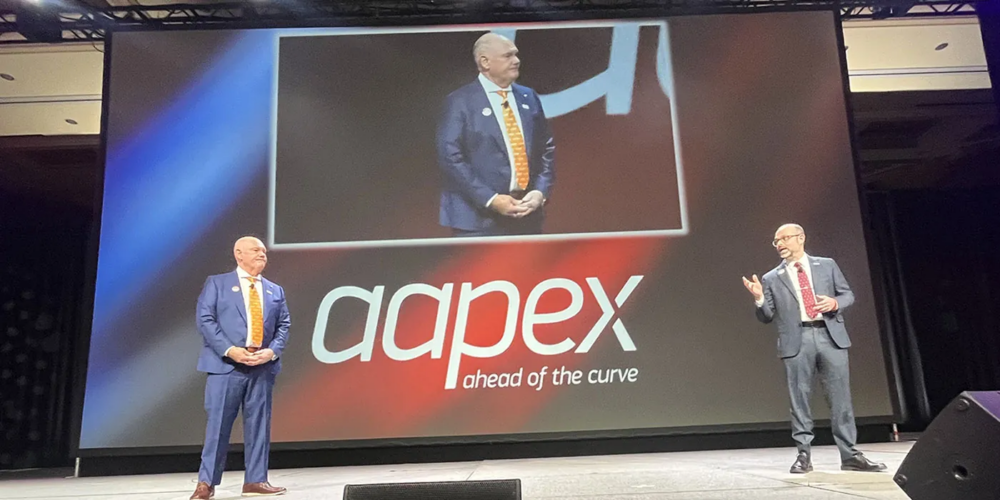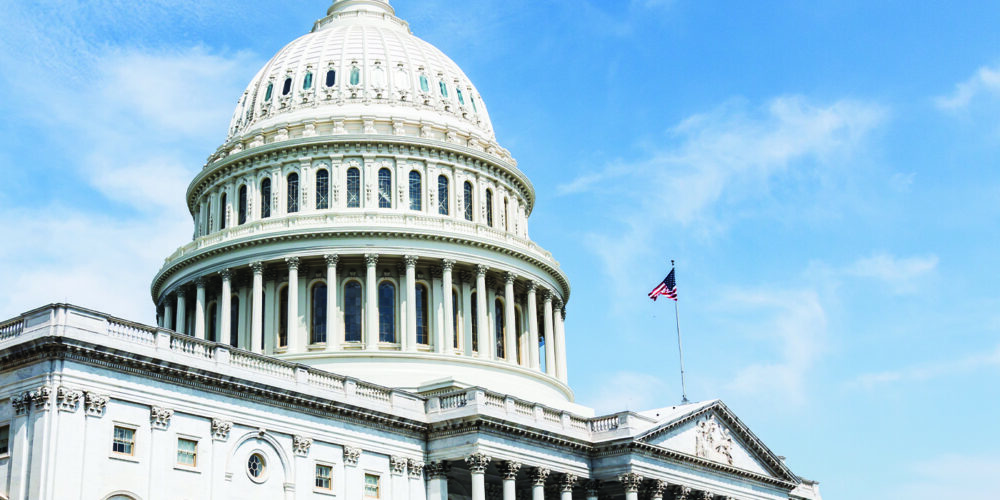At the 2023 AAPEX Show, show attendees had much to celebrate: First, AAPEX Show attendance surpassed pre-COVID levels– a sign that our industry is recovering from historic lows. Second, much advancement has taken place on Right to Repair at the federal level, and we’re gaining momentum on Capitol Hill for our cause.
In kicking off the show, Bill Hanvey, president and CEO of Auto Care Association, and Paul McCarthy, president and CEO of MEMA Aftermarket Suppliers, took to the stage to announce a sold-out show floor, an 86% increase in total exhibiting companies and an attendee crowd that includes more than 40,000 targeted buyers.
“Make no mistake, we are now a technology industry and together we envision a new era where the power of change drives us forward,” McCarthy said. “Where we elevate our value to the motoring public and where we create a bright future.”
On the forefront of that future is Right to Repair. It is one of the most critical challenges facing the automotive aftermarket, and it is vital to ensuring a prosperous future for the aftermarket. Hanvey and McCarthy called out the three pillars of repairability–data access, repair information access and parts access. They are essential to guaranteeing choice and affordability for consumers and the 4.7 million employees within the aftermarket. McCarthy warns that without the Repair Act, the independent aftermarket share could drop significantly by 2035, which would be detrimental to the industry and consumers.
“That would redirect $92 billion out of this room by 2035,” Hanvey said.
While there are headwinds, both Hanvey and McCarthy applauded support from congressional bill sponsors and association partners in moving the REPAIR Act forward. They highlighted the need for a federal 50-state solution that includes all vehicles, light- and heavy-duty, access to data and telematics, a real enforcement mechanism, and the ability for independent repair shops to update vehicles and parts to the latest software.
“The one thing about the automakers is that their approach is very predictable,” Hanvey said. “Their attempts to delay, deny and distort the truth have never been more evident than in the announcement of a new memorandum of understanding between the automakers, ASA and SCRS. And, we’re telling you here that we have learned our lesson, that an MOU is an IOU, unless, at the very least, there’s a mechanism for enforcement.”
Hanvey and McCarthy urged the audience to take action by visiting repairact.com, sending letters to legislators, running campaigns for customers who are drivers, and showing support with stickers and photos.
Along with the fight for the Right to Repair, the aftermarket faces big changes as more electric vehicles (EVs) roll onto roads. The growth of EVs and advanced driver-assistance systems (ADAS) represents a significant opportunity for the aftermarket, with electrification and ADAS parts expected to be key growth contributors. The remanufacturing of EV parts also highlights our industry’s commitment to sustainability. The opportunities are highlighted in the new EV joint report.
“Rest assured, the study says, that the aftermarket will continue to grow and there continues to be a long, fat, profitable tail for our existing product categories in growth,” McCarthy said. “It’s fueled by increasing content complexity and more expensive components. Even as the share of EVs on the road increases.”
“Electrification and ADAS parts will be key growth contributors to our industry, growing at about 18% and 8%, respectively, as new vehicle parts transition to these new technologies. All of these potential billions of market potential will not be available to the independent aftermarket, unless we get Right to Repair.”












